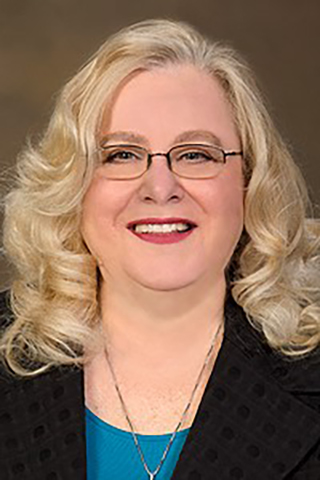November 22, 2019

Each year, the AZBio Awards and Life Science Fiesta celebrates leadership and innovation in the life sciences across Arizona. As part of this celebration on October 2, Marti Lindsey, Ph.D., was named the Michael A. Cusanovich Arizona Bioscience Educator of the Year, an award honoring educators who demonstrate leadership and creativity to engage students in life sciences.
“Learning opportunities are all around us. Many of these opportunities are thanks to dedicated educators who work to make them engaging, enlightening, and memorable,” stated Joan Koerber-Walker, president and CEO of AZBio. “Dr. Marti Lindsey is a great example of an educator who is making a difference here in Arizona and across the Southwest region.”
Lindsey’s work spans more than 18 years at the University of Arizona (UAZ), where she directs the Community Engagement Core (CEC) in the Southwest Environmental Health Sciences Center (SWEHSC). In this role, she works to stimulate discussions and collaborative interactions among SWEHSC researchers and the community. She also translates research findings into information to help communities understand how their environment affects their health.
“I strongly believe in giving people the opportunity to ask questions important to them and then provide educational support meaningful to them in novel, evaluated ways, in plain language – no jargon,” said Lindsey in a short video released by UAZ.
Engaging Tribal Communities in Science
Listening to community questions and concerns is the foundation of Lindsey’s work to engage tribal communities in environmental health science. Through the CEC she works closely with tribes to understand the Native perspective about science and the environment. She then uses this knowledge to help tribes better understand and address their environmental health concerns.
“Tribal partnerships grow by patiently listening to the community’s needs and questions,” she explained. “The most important thing a tribe can take away from my presence at a meeting or gathering is to know that the Center is a resource for them.”
Educating the Next Generation
Lindsey also builds collaborations between SWEHSC researchers and the K-12 education community. She is founder and co-director of the Keep Engaging Youth in Science (KEYS) High School Student Internship Program at the UAZ BIO5 Institute. Established in 2007, KEYS is a summer program that provides high school students interested in bioscience, engineering, environmental health, or biostatistics with an opportunity to work one-on-one with UAZ researchers. The KEYS design has been used to successfully develop two additional summer programs for high school and tribal college students. To recruit students to these programs, Lindsey travels the state, forming relationships with teachers and gifted students. To date, she has directly mentored more than 400 high school students.
“I do this work because I love teenagers, science, and discovery,” she said.


